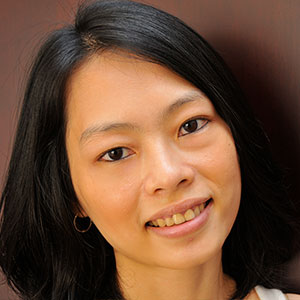In a conference on “Understanding Asian Youth in the Asian Century” that I attended this week, prominent scholar Professor Nicholas Tarling, in his keynote speech read out by his colleague, mentioned that the peak of his youth started at the age of 17-and-a-half.
 “My greatest success occurred when I was 17-and-a-half. But at the same time, ‘youths’ are vulnerable still, lacking a sense of the past, sometimes dismissing it, unthinking if not reckless about the future, open to appeal of strange fashions, of extremist religions, of mobs and gangs, of ideologies that exploit their openness often in order to close it.”
“My greatest success occurred when I was 17-and-a-half. But at the same time, ‘youths’ are vulnerable still, lacking a sense of the past, sometimes dismissing it, unthinking if not reckless about the future, open to appeal of strange fashions, of extremist religions, of mobs and gangs, of ideologies that exploit their openness often in order to close it.”
As he rightly pointed out, youths today are living in a time unlike any before.
Unconstrained by experience, youths may offer innovative answers and ready to experiment.
But the question is, the old may not welcome it or sceptical about their abilities. Such scenario is even more prevalent in Asian culture.
Linking to that, also during the conference, the term, “fen qing” in Chinese, which means angry youths, was brought to discussion several times.
“Fen qing” often uses the Internet or any other available political discourse to publicly express their critical views.
It is a term that could be dated back to 1970s in Hong Kong in reference to dissatisfied youths who sought reforms, but the term is now being used to describe the nationalistic Chinese youths, who are “angry” at Western influence and its attempt to undermine China’s rise on the world stage.
I am particularly attracted to this term and I ponder, what happen if I localise the meaning of “fen qing” to Malaysian context, by referring it to dissatisfied Malaysian youth who sought reforms from the government.
Over the past years especially since the Bersih wave, signs of frustration in Malaysian youths of our national politics are apparent.
We have witnessed how some student activists made headlines in local and international media as they voiced out against government policies and laws.
Take student groups such as Progressive University of Malaya and UM Association of New Youth (Umany) for example; their frustration cannot be dismissed as the product of ignorance.
They are, however, remained as a minority group, by numbers. One explanation for this is, in reality, youths are still constrained by society, as they are not encouraged to voice personal opinions in public.
Angry youths is the product of the environment. Those living under heavy pressure become angry when they could not find any way out and having said that, the feeling of frustration is the breeding ground for angry youths.
In the closing of Tarling’s speech, he asked, “Will the youths be more ready to take risks if the old are more willing to provide them opportunities? Or has the present system made it too risky for the youths?”
With the direction that the country is moving to, we have to seriously ask ourselves, are we breeding our own version of angry youths? – December 19, 2015.
* This is the personal opinion of the writer or publication and does not necessarily represent the views of The Malaysian Insider.


Comments
Please refrain from nicknames or comments of a racist, sexist, personal, vulgar or derogatory nature, or you may risk being blocked from commenting in our website. We encourage commenters to use their real names as their username. As comments are moderated, they may not appear immediately or even on the same day you posted them. We also reserve the right to delete off-topic comments